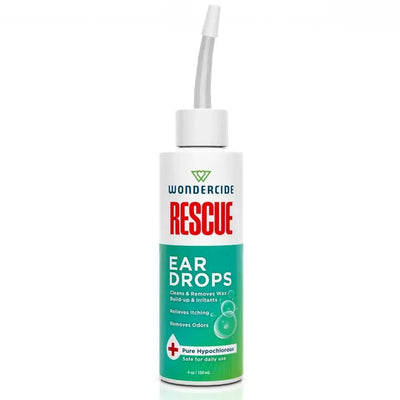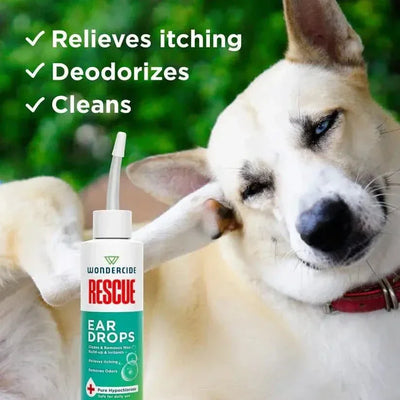
Cat Ear Care
Keep your feline friend purring with comfort. Cat Ear Care is your go-to solution for maintaining healthy, irritation-free ears. This gentle, alcohol-free cleaner is lovingly formulated to tackle excess wax, reduce odor, and prevent discomfort, all while soothing sensitive skin. With effective natural ingredients like aloe and witch hazel, it cleanses deeply yet delicately, ensuring your cat’s well-being without any stings or stress. The easy-apply bottle makes each ear-cleaning session quick and hassle-free, strengthening the bond between you and your pet. Plus, its vet-approved formula provides peace of mind for managing yeast or bacterial concerns while supporting overall ear health. With Cat Ear Care and the convenience of Autoship, healthy ears are always just a squeeze away. Add it to your cat’s wellness routine today!
Q&A on Cat Ear Care
Q: How often should I check my cat's ears?
A: You should check your cat’s ears at least once a week. Regular checks can help you spot any signs of wax buildup, redness, or infection early on.
Q: What are the signs of healthy cat ears?
A: Healthy cat ears should be clean and pink, with no noticeable odor or discharge. Your cat should not show any signs of discomfort when you touch or inspect their ears.
Q: What are common signs of ear problems in cats?
A: Look out for head shaking, frequent scratching around the ears, visibly dirty ears, a strong odor, redness, swelling, or discharge. These could signal an issue like ear mites, an infection, or allergies.
Q: How do I clean my cat’s ears?
A: Use a vet-approved cat ear cleaner and cotton balls or gauze. Apply the cleaner to the cotton ball (never directly into the ear), gently wipe the inside of the ear flap, and avoid inserting anything deep into the ear canal.
Q: Are cotton swabs safe for cleaning my cat’s ears?
A: No, using cotton swabs can push debris further into the ear canal and potentially injure your cat’s ear. Stick to cotton balls or gauze for safe cleaning.
Q: What causes ear mites in cats?
A: Ear mites are tiny parasites that live in the ear canal. They are highly contagious and often spread from cat to cat. Symptoms include excessive scratching, head shaking, and black or brown debris resembling coffee grounds in the ears.
Q: When should I take my cat to the vet for ear issues?
A: If you notice persistent scratching, redness, swelling, discharge, a foul smell, or your cat seems to be in pain, schedule a vet visit immediately. Ear problems can worsen quickly if untreated.
Q: Can I use home remedies for my cat’s ear care?
A: It’s best to avoid home remedies unless approved by your vet. Some substances may be harmful to your cat’s sensitive ears. Stick to vet-recommended products.
Q: How can I prevent ear problems in my cat?
A: Regular ear checks, cleaning as needed (not too often to avoid irritation), and keeping your cat's environment clean can help prevent ear issues. Also, ensure your cat stays up to date on flea and mite preventatives.
Q: Can ear issues affect all cats?
A: Yes, but some cats may be more prone than others. Breeds with folded ears, like Scottish Folds, or cats with allergies may require more frequent ear care. Always consult with your vet for breed-specific guidance.
By properly caring for your cat’s ears, you can keep them happy, healthy, and comfortable!








